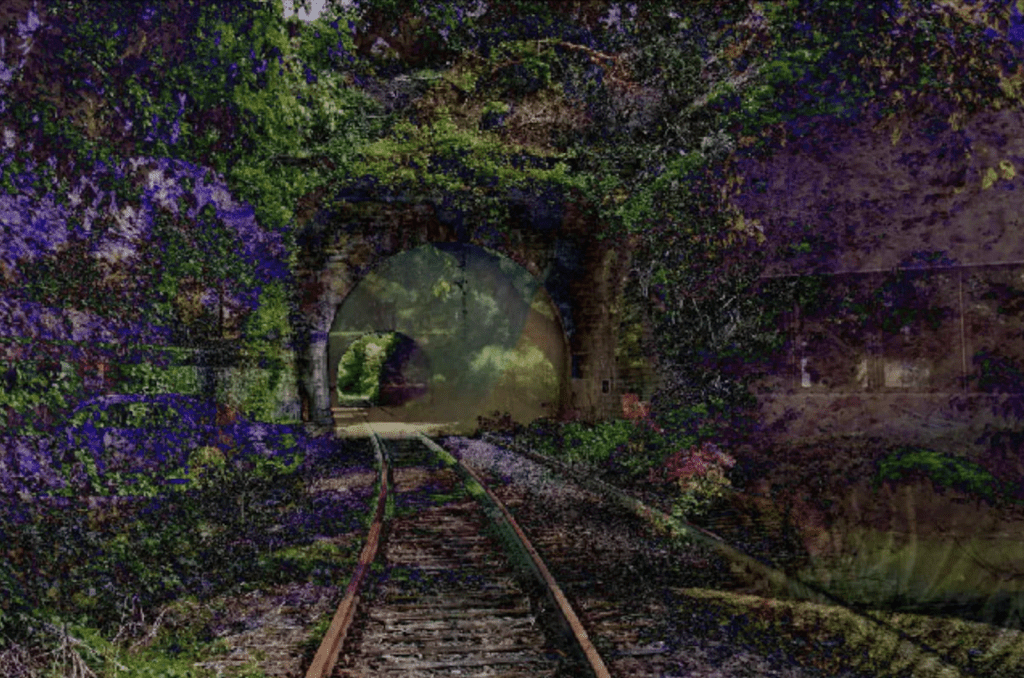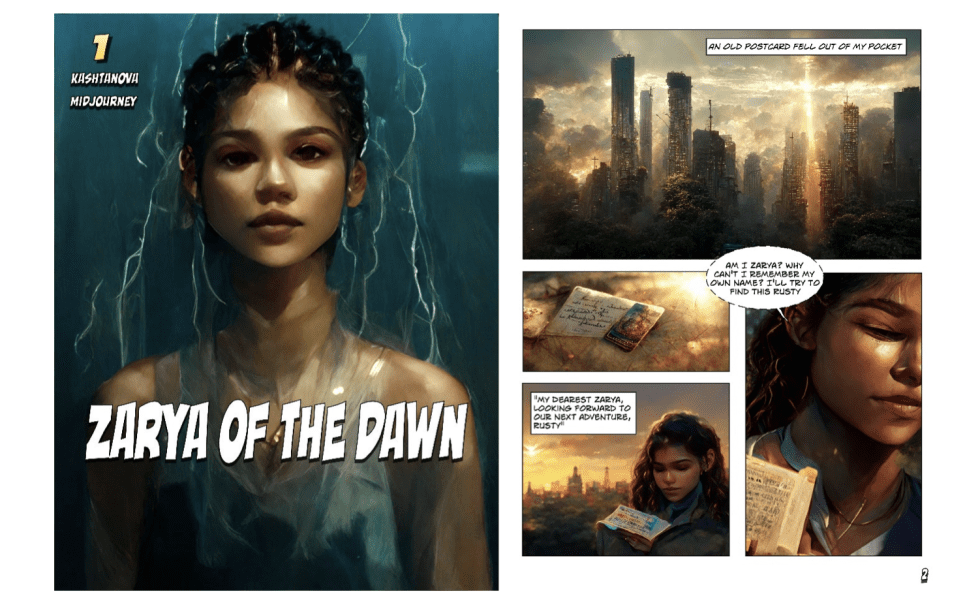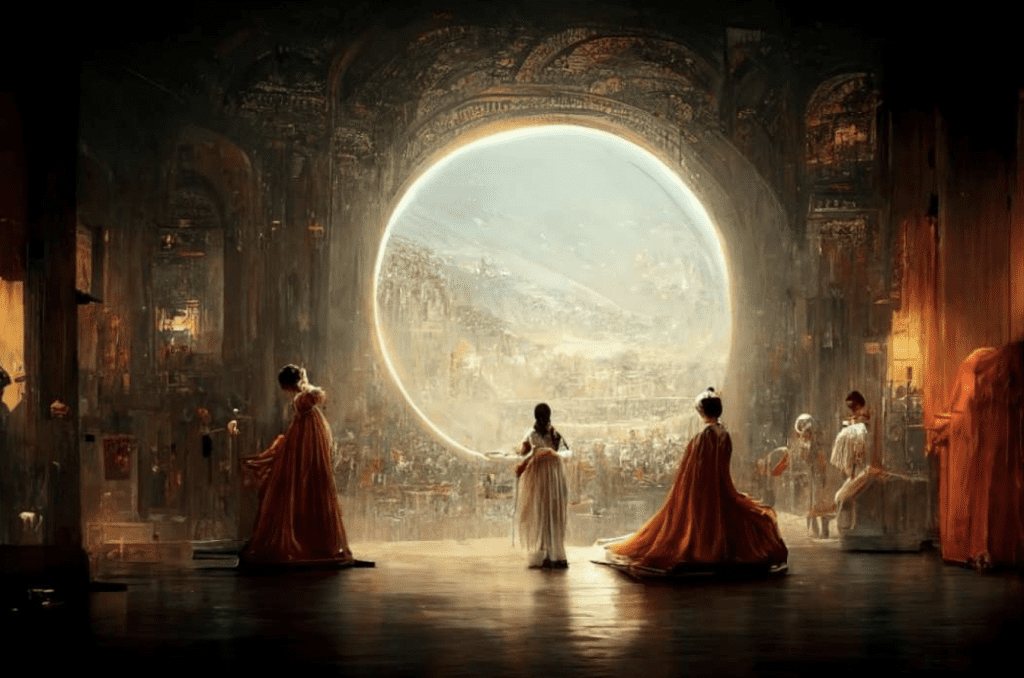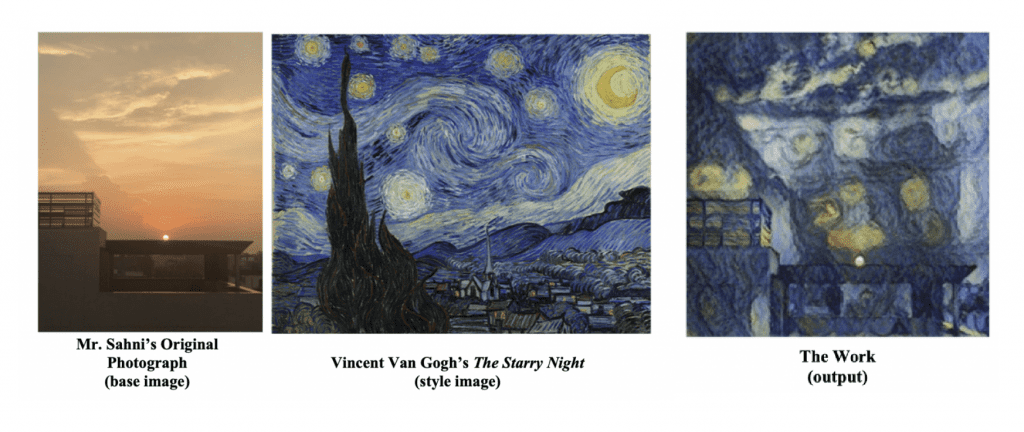Deep Dives
Amid the rise in adoption of generative artificial intelligence (“AI”) platforms, including by artists, which reached new heights this year, the Copyright Office is tackling the impact of this budding technology on creative works. The Office revealed in August 2023, for example, that it was seeking comments in connection with a study of the law and policy issues posed by AI systems that come hand-in-hand with the onslaught of complicated questions about authorship and infringement (and fair use), and as a growing number of copyright-centric lawsuits are being waged against generative AI giants like OpenAI.
In a notice published in the Federal Register in August 2023, the Copyright Office stated that it is seeking insight on “the use of copyrighted works to train AI models, the appropriate levels of transparency and disclosure with respect to the use of copyrighted works, and the legal status of AI-generated outputs” not only to inform its study and help it assess whether legislative or regulatory steps in this area are warranted. (For a quick dive into the Federal Trade Commission’s comment on the subject, you can find that here.)
The call for comments came several months after the Copyright Office issued a statement of policy in order to “clarify its practices for examining and registering works that contain material generated by the use of AI technology.” Because it receives “roughly half a million applications for registration each year,” the Copyright Office said in a March 2023 statement that it “sees new trends in registration activity that may require modifying or expanding the information required to be disclosed on an application.”
> One such development: The use of “sophisticated AI technologies capable of producing expressive material.” For some background, the Office asserts that “these technologies ‘train’ on vast quantities of preexisting human-authored works and use inferences from that training to generate new content. Some systems operate in response to a user’s textual instruction, called a ‘prompt.’ The resulting output may be textual, visual, or audio, and is determined by the AI based on its design and the material it has been trained on.”
All the while, the U.S. Copyright Office (“USCO”) has been reviewing and making decisions on applications that center on generative AI, shedding light on how it views issues like authorship and how/the extent to which the involvement of generative AI needs to be disclosed in order to enable Copyright Office examiners to make determinations on applications. Against this background, we have put together a running timeline of the Copyright Office’s decisions (and any corresponding appeals/developments) on this front …
Following an initial refusal and appeal in January 2024, the U.S. Copyright Office granted a registration to Elisa Shupe for her novel “AI Machinations: Tangled Webs and Typed Words,” which she created using ChatGPT. Specifically, the narrow registration, which was granted in April 2024, gives protections to Shupe exclusively for her “selection, coordination, and arrangement of text generated by artificial intelligence,” and does not extend to the text, itself. In essence, the registration – which is backdated to October 10, 2023 – enables Shupe to take legal action against parties that replicate the book in its current form but likely does not provide her with recourse in the event that the text is rearranged without her authorization.
Shupe, who initially filed an application for registration with the USCO in October 2022, created the work by entering custom commands into OpenAI’s ChatGPT program and then making edits to the text outputs. In fact, counsel for Shupe argued on appeal that she made significant edits to the ChatGPT-generated text, “adjusting almost every line in some way, from changes in word choice to [sentence] structure.”
On November 3, 2018, Stephen Thaler filed an application to register a copyright claim in a 2-D work, called “A Recent Entrance to Paradise,” identifying the author of the work as the “Creativity Machine,” an AI system that he created. In his application, Thaler stated that the artwork work “was autonomously created by a computer algorithm running on a machine” and that he was “seeking to register [the] computer-generated work as a work-for-hire to the owner of the Creativity Machine,” which was, of course, himself.

On the heels of the USCO refusing to register the work, which prompted Thaler to file suit against the USCO and Register Shira Perlmutter, Judge Beryl A. Howell of the U.S. District Court for the District of Columbia stated in a memorandum opinion in August 2023 that U.S. copyright law “protects only works of human creation,” and AI-generated creations fall outside of such bounds. In her opinion, Judge Howell said that the case centers exclusively on “the legal issue of whether a work autonomously generated by an AI system is copyrightable.”
In considering Thaler’s application for “A Recent Entrance to Paradise,” which Thaler represented as being created without any human involvement, the court upheld the USCO’s conclusion that “this particular work will not support a claim to copyright” because the work “lack[s] human authorship and thus, no copyright existed in the first instance.” The USCO “did not err in denying the copyright registration application presented by [Thaler],” according to the court, as U.S. copyright law “protects only works of human creation.”
This summer, counsel for Thaler said that they “disagree with the court’s interpretation of the Copyright Act,” and filed an appeal to the U.S. Court of Appeals for the District of Columbia Circuit in October.
On September 15, 2022, Kristina Kashtanova submitted an application for a graphic novel, called “Zarya of the Dawn,” the images in which she created using AI software Midjourney. After issuing a copyright registration for the graphic novel in its entirety, the USCO sought clarification from Kashtanova about her use of image-generating AI software in light of widespread media attention about the fact that while she wrote the text of the book, she used Midjourney to create the images, which she did not disclose in her copyright application.

After reviewing Kashtanova’s original copyright registration application, as well as the relevant correspondence in the administrative record, the USCO’s Associate Register of Copyrights Robert Kasunic alerted Kashtanova’s counsel in a letter on February 21, 2023 that while she “is the author of the work’s text, as well as the selection, coordination, and arrangement of the work’s written and visual elements [and] that authorship is protected by copyright,” the images in the work that were generated by the Midjourney technology “are not the product of human authorship,” and thus, not protected.
“Because the current registration for the work does not disclaim its Midjourney-generated content, we intend to cancel the original certificate issued to Ms. Kashtanova and issue a new one covering only the expressive material that she created,” Kasunic stated in the letter, noting that the “reissuance of the registration certificate will not change its effective date.” Meanwhile, the public record “will explain that the cancelled registration was replaced with the new, more limited registration.”
On September 21, 2022, Jason Michael Allen filed an application to register a 2-D artwork claim in a work entitled, “Théâtre D’opéra Spatial.” While Allen did not disclose in his application that the work was created using an AI system, the USCO revealed that it “was aware of the work because it had garnered national attention for being the first AI-generated image to win the 2022 Colorado State Fair’s annual fine art competition.” As such, the USCO’s examiner requested additional ifnromation from Allen about the work, and ultimately, called on Allen to remove the features of the work generated by Midjourney from the copyright claim.
When Allen declined and reasserted his claim to copyright in the features of the work produced by an AI system, the USCO refused to register the claim because the deposit for the work did not “fix only [Allen’s] alleged authorship” but included “inextricably merged, inseparable contributions” from him and Midjourney.

Following an unsuccessful initial request for reconsideration, the USCO refused to register the work for a second time in September 2023 on the basis that the work “contains more than a de minimis amount of AI- generated content, which must be disclaimed in an application for registration.”
On December 1, 2021, Ankit Sahni filed an application to register a claim in a 2-D work, called “Suryast.” In the application, Sahni listed two authors: (1) himself as the author of “photograph, 2-D artwork” and (2) “RAGHAV AI Painting App” as the author of “2-D artwork.” Sahni identified himself as the sole copyright claimant. In response to a request for additional information, Sahni told the USCO that he created the work by using RAGHAV, which “generat[es] an image with the same ‘content’ as a base image” but “with the ‘style’ of [a] chosen picture.”

On the heels of an initial request for reconsideration, the Copyright Office’s Review Board alerted counsel for Sahni that it had considered his second request for reconsideration and affirmed a previous denial of registration. In its December 2023 decision, the USCO primarily refused to register the work on the basis that it “lacks the human authorship necessary to support a copyright claim.” Specifically, it stated that despite Sahni’s claim that the work includes some human creative input, the work is not registrable, as “this human authorship cannot be distinguished or separated from the final work produced by the computer program.” And following an unsuccessful first request for reconsideration, the Review Board rejected the application on the basis that Suryast “does not contain sufficient human authorship necessary to sustain a claim to copyright.”
Among other things, the USCO Board determined that since Sahni only provided three inputs to RAHGAV, “the RAGHAV app, not Mr. Sahni, was responsible for determining how to interpolate the base and style images in accordance with the style transfer value,” and that “RAGHAV’s interpretation of Mr. Sahni’s photograph in the style of another painting is a function of how the model works and the images on which it was trained on – not specific contributions or instructions received from Mr. Sahni.”
As a side note, the USCO is not the only Office taking up issues on this front …
China: In a first ruling of its kind, a court in China held that an image created using an AI platform is subject to copyright protection, and thus, unauthorized use of the image amounts to infringement. That is what the Beijing Internet Court held in November in a case that centered on an image that the plaintiff – who was identified by the surname Li – created using Stable Diffusion, an AI-powered text-to-image generate. Li filed suit in Beijing in May, alleging that the defendant – an individual with the surname Liu – published the image at issue on an online platform without his authorization, thereby, engaging in copyright infringement. It is worth noting that the Beijing Internet Court is distinct from the specialized intellectual property court in China, which is sigificant, according to Andres Guadamuz, a professor in intellectual property law at the University of Sussex, who says that the former’s decisions on IP issues “can easily be reversed or ignored by other courts.”
India: In 2020, Ankit Sahni sought a copyright registration for “Suryast” (the same work as above) in India. He filed two applications for the work, listing the RAGHAV AI app as the sole author in furst first application, and himself and RAGHAV as co-authors in the second. The first application was rejected by the Copyright Office, whereas the second was granted registration in November 2020. While Sahni told Managing IP in 2020 that he anticipated that the registration “may be challenged in court due to ambiguity in the legislation and jurisprudence,” (and a year later, the Indian Copyright Office issued a notice of withdrawal, citing Sections 2(d)(iii) and Section 2(d)(vi) of the Copyright Act, which center on authorship), he, nonetheless, lauded “the act of granting recognition to an AI program as co-author of an artistic work marks the beginning of an era of change that governments across the world will be working on.”
*This Deep Dive was initially published on December 1, 2023, and has been updated accordingly since then.